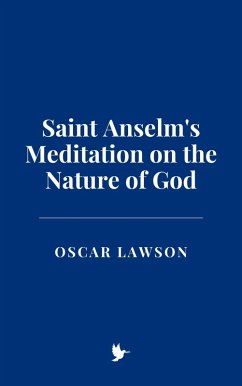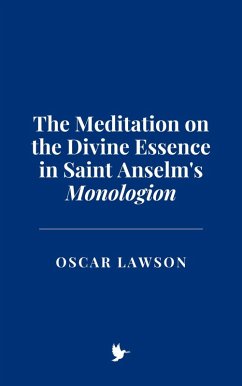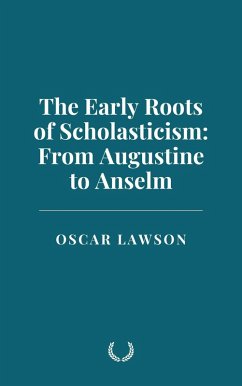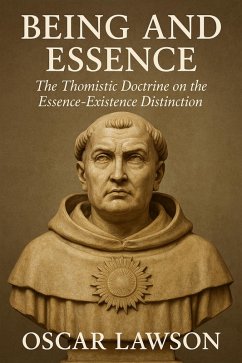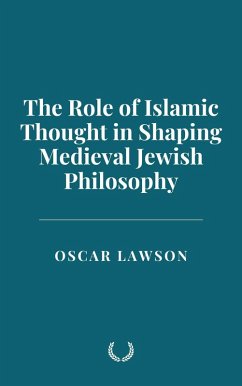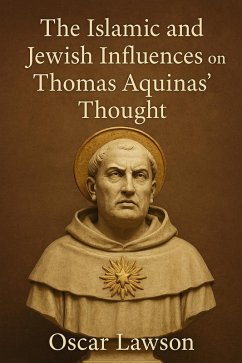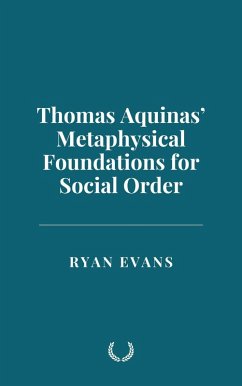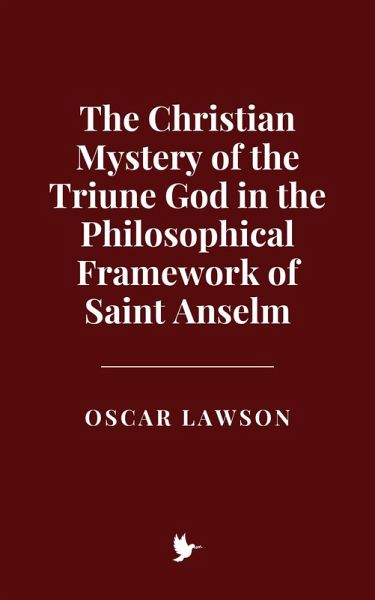
The Christian Mystery of the Triune God in the Philosophical Framework of Saint Anselm (eBook, ePUB)

PAYBACK Punkte
0 °P sammeln!
The doctrine of the Triune God stands as one of the central tenets of Christian theology, asserting that God exists as three personsFather, Son, and Holy Spiritwho are co-eternal, co-equal, and consubstantial, yet distinct. This theological mystery is perhaps the most profound expression of Christian belief, encapsulating the nature of God's being and his relationship to the world. It is a doctrine that finds its origins in the biblical revelation and has been developed, articulated, and defended through centuries of Christian thought. Its formal articulation as "One God in Three Persons" was ...
The doctrine of the Triune God stands as one of the central tenets of Christian theology, asserting that God exists as three personsFather, Son, and Holy Spiritwho are co-eternal, co-equal, and consubstantial, yet distinct. This theological mystery is perhaps the most profound expression of Christian belief, encapsulating the nature of God's being and his relationship to the world. It is a doctrine that finds its origins in the biblical revelation and has been developed, articulated, and defended through centuries of Christian thought. Its formal articulation as "One God in Three Persons" was not a sudden discovery, but a gradual unfolding of insight and understanding, influenced by the early Church Fathers, the Councils, and the ongoing theological and philosophical debates that shaped the Christian tradition. In this context, one of the most significant figures in medieval Christian thought was Saint Anselm of Canterbury. Living from 1033 to 1109, Anselm is known for his intellectual rigor and his systematic approach to Christian doctrine. Though Anselm is perhaps best known for his ontological argument for the existence of God, his contributions to Trinitarian theology are equally important. Anselm's approach to the mystery of the Trinity was deeply philosophical, rooted in his desire to understand the essence of God through reason, while remaining grounded in the Christian faith.
Dieser Download kann aus rechtlichen Gründen nur mit Rechnungsadresse in A, B, CY, CZ, D, DK, EW, E, FIN, F, GR, H, IRL, I, LT, L, LR, M, NL, PL, P, R, S, SLO, SK ausgeliefert werden.




